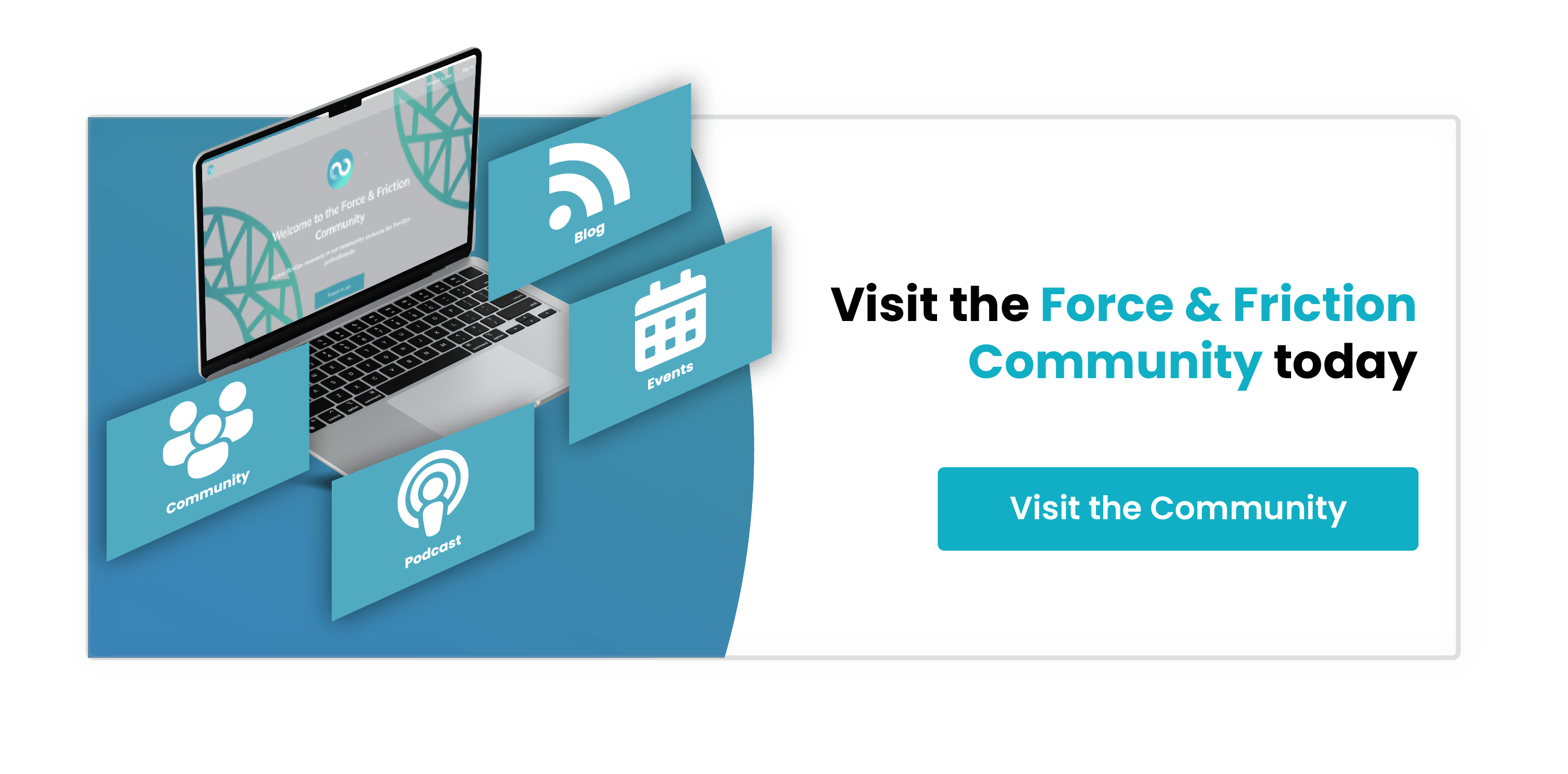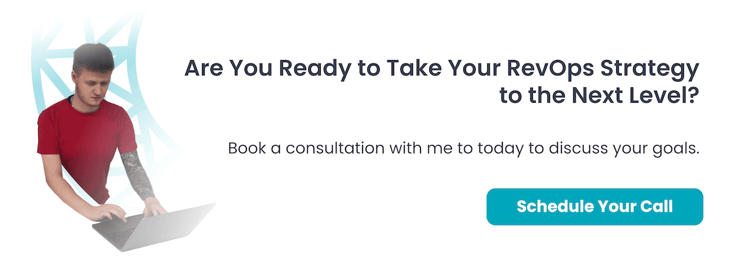
Secrets to Hiring the Right Revenue Operations Team
In any organisation, few things are as damaging as the “silo mentality” - a tendency towards excessive compartmentalisation between different teams within the same company.
This approach invariably leads to confusion, inefficiency and, in the long run, loss of revenue. Revenue Operations (RevOps) is a business function counters that tendency, with the aim of maximising an organisation’s revenue through operational efficiency.
Whatever the company, and the product or service it provides, successful RevOps rely on three pillars: Processes, Platforms, and Peoples. The first refers to the need for unified processes which are followed across the organisation.
The second expresses the need to align accessible technology with reliable data so it’s accessible to everyone involved in the process. This ensures everyone is on the same page and working towards the same goal. The third, of course, covers the people who manage the first two pillars.
Without the right people, with the right attitude, and skill sets to manage processes and platforms, RevOps will simply not work. But how can you ensure you choose the best possible candidates for each position? In this relatively new field, people from all kinds of backgrounds, experience and education can bring something of value to their teams; this makes it an exciting, fast-moving specialism, but also complicates the recruitment process.
In order to choose the best candidates, there are three main things to keep in mind: your company’s objectives, the different roles covered by team members, and the candidate profiles you are most likely to encounter during the hiring process.
Listen to this Article on Spotify
Hiring RevOps Team Members
A RevOps team works together to create a streamlined, end-to-end process that comes to life from the moment a potential client considers a purchase (the goal of marketing), through the moment of the sale, and then beyond that with good customer support.
This cycle should lead to repeat business from satisfied customers, as well as referrals to potential new clients via word of mouth. This is referred to as ‘customer success’.
No one part of this process can be left to chance. There’s no room for mavericks either, all of your people and all of your departments must be pushing towards the same overarching goals.
For that to happen, the right people need to be in place. And for that to happen, you need to know what kinds of people and which roles need to be filled. You need to know you’re hiring the best RevOps team members you can. Broadly speaking, you’ll want to fill four different positions to build out a successful RevOps team:
- The RevOps Leader: A good leader will have a top-down, 360-degree view of all people, processes and data. This person actively works to eliminate friction and bring all your moving parts (and people) together to deliver the best possible results.
Your leader is the driving force behind your team, keeping everyone on target while also ensuring that all activity and effort is closely aligned with the organisation’s goals - as well as industry standards. - Project Manager: In smaller companies, it is not uncommon for the leader and project manager to be the same person. In larger organisations where there is more to juggle, a project manager is needed in order to filter and prioritise projects.
- Data Analyst: Data and metrics are the bedrock of any successful RevOps strategy. A RevOps Data Analyst will measure, track, analyse and aggregate all relevant data, building reports that leaders and managers can rely on in order to understand whether their strategy needs adjusting - or even changing entirely.
- Platform Team: It is vital to have knowledgeable team members to keep the company’s platform functional, as well as optimising it to best serve the ultimate goal of revenue optimisation.
Whether all these figures are present, or whether the same individual may take on more than one role, depends on the size of the organisation and the subsequent workload involved.
Each organisation is different, and there is no one-size-fits-all solution; in small companies, RevOps may be down to one of two individuals.
As a company grows, however, so will the need for a larger team with each of these four distinct roles filled by capable professionals who understand how to achieve revenue optimisation.
But how do you know when you need to hire a full team, and how should you go about it? What kind of candidates are you going to encounter, and how do you choose the right one? Let’s find out.
Identifying RevOps Candidates
Do you need a RevOps team in the first place? If you’re planning to scale up your operation and expand your company, then yes: a RevOps team is essential to help you achieve your goal of revenue maximisation as quickly and smoothly as possible.
If you already have a small RevOps team, or just one person doing RevOps - and that person may just be you! - should you look at hiring more?
If you’re asking that question in the first place, the answer is probably yes: the question is rarely posed when all a company’s needs are being met by the current team.
Whether you’re thinking of adding to an existing team or planning to implement RevOps in your company for the very first time, you will need to keep in mind your company’s priorities as you choose the right fit for each role.
There are essentially three types of candidates for a RevOps role: the operations leader with prior experience, the transitioning generalist, and the credentialed specialist.
The prior experience of an operations leader can be invaluable for your company and your ability to scale.
As someone who has gone through the process of helping an organisation grow and maximise revenue, they will understand the challenges, know how to overcome common roadblocks and have a library of tried-and-tested strategies to help you achieve the same.
The transitioning generalist is someone who comes from a different field. They have experience in other areas of business, but have never been involved in operations.
This lack of tangible experience may put off some, but as RevOps is a relatively new field, the vast majority of people working in RevOps were once transitioning generalists - up to and including some of the best, most experienced operation leaders.
As the name suggests, a credentialed specialist is someone with official credentials which certify their expertise in a specific area, of which they have a deep understanding.
During the hiring process, you may find yourself tempted to hire people with a similar knowledge as your own in the same fields; it is not an unusual trap to fall into, but a trap it is. It’s a pitfall you should aim to avoid at all costs.
A team which mirrors your own strengths and weaknesses is bound to remain weak in some key aspects of RevOps, and risks functioning as an echo chamber of like-minded people - suggesting the same solutions to one another over and over without the breath of fresh air that comes from a strong voice with a different perspective.

How to Prioritise Hiring for RevOps
Instead of relying on this sense of kinship to pick your next hire, you should ask yourself what your company is lacking; what are you currently unable to do, and what kind of person would be the best fit to do it?
If customer service is not your strong suit, it follows that you need to hire someone with experience in the field; if your current team struggles to collate and make use of the data and metrics which are the lifeblood of any RevOps strategy, that’s where a good analyst needs to come in.
Whatever position you’re looking to cover, you’ll be looking at the three types of candidates covered above. Each of them brings something to the table, and you need to know what it is that your company needs in order to make the best possible choice.
Not only that, you need to know when that recruitment must take precedence to enable RevOps within your organisation. You need to know how to prioritise hiring for RevOps.
Due to their prior experience working in RevOps, the experienced operations leader often requires higher wages - but they can bring immense value to a company looking to scale up its operations.
While it is true that no two companies are quite the same, the problems and challenges they face in the market are broadly similar.
Trial and error from a team without prior RevOps experience can, and often does, yield good results; however, this may take time and resources, with no short-term increase in revenue to counter that.
Relying on established expertise is the quickest way to implement positive change - although, for example, an expert who used to work at a much larger company may not be the best equipped to help a small company step up to become a medium sized organisation.
Transitioning generalists represent the vast majority of people working in RevOps. What they may lack in experience, they make up for in flexibility: the right candidate will be quick on the uptake, and may suggest winning solutions that stand out for creativity.
One of the risks with an experienced operations leader is that they may be a bit too set in their ways, and bring in solutions that may have been ideal for another company, but not necessarily for yours.
While the process of gauging competencies and skills takes some time and effort with the other candidates, this process is usually easier in the case of credentialed specialists: through their industry-accepted credentials, you will know right away that they do indeed have a deep knowledge of their field.
If your company’s operations have an immediate problem that needs solving quickly, the credentialed specialist is often the one to turn to.
Interviewing RevOps Candidates
As mentioned above, there are pitfalls to avoid when setting up any interview: a sense of kinship may overpower other considerations about the candidate’s skills, or you may be inclined to hire someone you seemed to ‘click’ with, on a personal level, over the course of your conversation.
Whilst personality and behaviour are factors to keep in mind when hiring someone - for a role that requires to work well with other team members, a person who’s not inclined to communicate with others may not be ideal - you will also need to carry out an evaluation of their skills.
That can be difficult to get through the traditional interview: having the candidate sit across a desk to talk is not enough for an accurate assessment of what they can do on the job.
In order to make the hiring process fair, as well as giving you the best chance to get a feel of each candidate and avoid the risk of hiring someone to realise later they’re not a good fit, you should establish a standard process to replicate when interviewing RevOps candidates.
A first step is to ensure that the candidate has the technical skills they will need for the role. Unless you are hiring an operation leader with prior experience, this is not a simple matter of going over their previous jobs.
Rather, you will need to focus on the skills they gained in their own field and understand if, and how, these skills can translate to the candidate’s new position in RevOps.
For example, if their previous role involved problem-solving driven by great data analysis skills, you are looking at a strong candidate for a RevOps job.
Once you have established the candidate’s potential, it is time to move on to a more practical assessment of their skills: a task to be completed within a certain time frame.
It is important that the test can be completed at home, and not in the presence of a hiring commission; this will allow you to see how the candidate would perform on the job, where - ideally - there should be no need for them to be under constant watch.
Once the candidate has passed the skills assessment, it’s time for the in-person interview. This is when you should get a feel of the kind of person the candidate is, and how well they could fit in the team personality - and behaviour-wise.
Never let these considerations take too much space, though: what your company needs is paramount, taking precedence over how much you personally like a candidate.
Standard questions to ask at each interview will help keep focus on the potential candidate’s skills and performance.
The process may seem daunting but, once you have thought long and hard about what kind of professional the company needs and have established a standard for interviews, finding the right people to join your team will be a breeze.







%20-%20Teal.png?width=500&height=130&name=Force%20%26%20Friction%20-%20Branding%20-%20Logo%20(White)%20-%20Teal.png)